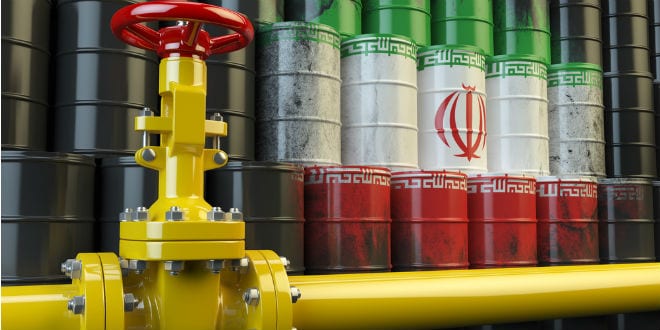U.S. President Donald Trump’s administration announced Monday that any country importing Iranian oil will no longer be exempt from sanctions, unless they secede from the partnership by May 2. It marks a renewed White House effort to heighten pressure – particularly economic – on the reeling Islamic Republic.
“President Donald J. Trump has decided not to reissue Significant Reduction Exceptions (SREs) when they expire in early May,” the administration said in a statement.
“This decision is intended to bring Iran’s oil exports to zero, denying the regime its principal source of revenue.”
The countries who will no longer benefit from the waivers are China, India, Japan, Taiwan, South Korea, Italy, Greece and Turkey. India is an interesting case; although it has warm ties with Washington, it does not agree on U.S. assistance that Iran is as serious a threat as western countries assess.
“They collectively imported a million barrels a day of Iranian oil. Prior to sanctions, Iran was exporting 2.1 million barrels per day. That figure had already dropped to 700,000 barrels. Since oil is Iran’s single export commodity, its cutoff to zero is a virtual death blow to its economy,” said a report on Debkafile.
Turkey, under the leadership of Islamist strongman Recep Tayyip Erdogan, vowed to defy U.S. demands, which could cause global oil prices to spiral upwards. Trump tweeted that an increase in Saudi Arabian oil output would make up for the Iranian shortfall.
Saudi Arabia and others in OPEC will more than make up the Oil Flow difference in our now Full Sanctions on Iranian Oil. Iran is being given VERY BAD advice by @JohnKerry and people who helped him lead the U.S. into the very bad Iran Nuclear Deal. Big violation of Logan Act?
— Donald J. Trump (@realDonaldTrump) April 22, 2019
By targeting Iran’s principal export, the United States is seemingly involved in a no-holds-barred move to crush the economy and scale back the clerical regime’s influence. Even before these latest sanctions, the previous attempts to suppress Iran’s economy appeared to have been successful.
“The official inflation rate had soared past 50 pc to stand at an annual rate of 30.6pc. Basic foods, water and tobacco were priced 85.3p higher than the corresponding period the year before. Whereas in 2018, the US dollar went for 40,000 rial, today the rate has sunk further to 140,000 rial,” according to Debkafile.
Israel’s Prime Minister Benjamin Netanyahu who has been a consistent critic of the Iranian regime and was implacably opposed to the Obama Administration’s cosying up to the mullahs came out in strong support of Trump’s decision.
PM Netanyahu: “The decision of @POTUS @RealDonaldTrump and the American administration to increase the sanctions against Iran is a decision of very great importance. This is how to deal with Iran’s aggression and this is how to block it.” pic.twitter.com/iHWiC8N9Kt
— PM of Israel (@IsraeliPM) April 22, 2019
For its part, Iran has not taken the impending imposition of sanctions lightly, criticizing the existing restrictions as being at least partly to blame for the country’s poor response to recent massive flooding.
It also leaves the Islamic Republic in a difficult situation. Its population is suffering – and despite U.S. officials saying that the sanctions are not meant to affect the common Iranian, they clearly are. It seems therefore that there are two choices; either the Iranian regime can bow to U.S. pressure or tensions in the region will be increased further, possibly through Iranian closure of the Straits of Hormuz – through which one-fifth of the world’s daily oil requirements passes or through military measures.
Source: Israel in the News

